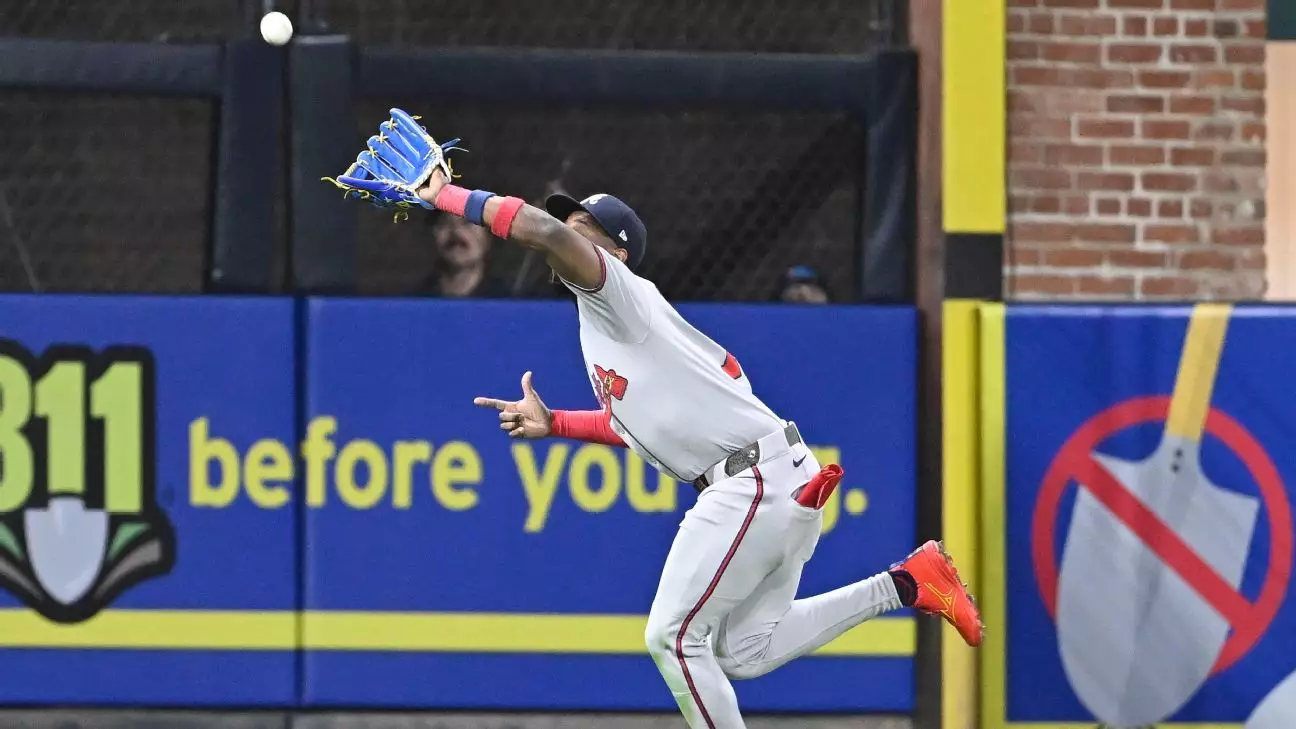In the high-stakes world of Major League Baseball (MLB), where every play is scrutinized and every decision holds monumental consequences, the recent suspension of Jurickson Profar casts a long shadow over the Atlanta Braves. Sidelined for 80 games after testing positive for chorionic gonadotropin (hCG), a performance-enhancing substance, Profar’s situation serves as a poignant reminder of the fragile balance athletes must maintain between their aspirations and the ethical standards governing professional sports. We must grapple with the implications of this decision, not only for Profar but for the entire sports community.
The crux of this matter lies in Profar’s emotional response. He expressed deep regret and devastation, stating that Monday marked “the most difficult day of my baseball career.” These sentiments strike a chord because they echo the inner turmoil many athletes face when caught between their love for the game and the pressures to perform. It raises a fundamental question: How far is too far when it comes to enhancing performance? Profar’s lamentation reveals the human side of this controversy—a man who claims never to have knowingly cheated the game he loves now grapples with the consequences of his actions. Nonetheless, regardless of intention, the repercussions are stark and damaging.
A Test of Integrity
The Braves’ statement in response to Profar’s positive test emphasizes disappointment and surprise, which encapsulates the broader sentiment around doping in sports. The organization’s commitment to the Joint Prevention and Treatment Program showcases a dedication towards fair play, but it also highlights the grey areas surrounding intent and knowledge in doping cases. Profar’s claim that he was tested eight times without any prior positive results adds a layer of complexity—how can a player with such a clean history find himself embroiled in scandal? This paradox leads to speculation about the effectiveness and fairness of the testing protocols in place.
Moreover, this situation underscores the reality that MLB’s drug enforcement policies can appear both stringent and flawed. While the league’s objective is to maintain integrity, what happens when a player insists on their innocence? The burden of proof often lies heavily on the accused, leading to a culture of suspicion that can tarnish not only careers but reputations as well. Profar, a player with significant potential, now faces an uphill battle to restore his image and credibility, both on and off the field.
The Collective Impact
Profar’s absence from the Braves lineup during an already challenging season amplifies the challenges the team faces. The Braves, who have struggled in recent games, must now navigate their path without a key contributor. With star outfielder Ronald Acuña Jr. still on the injured list, losing Profar exerts additional stress on a team attempting to stay competitive. The decision to trade for Stuart Fairchild suggests that the Braves are trying to compensate for lost talent, yet it remains uncertain whether this move will yield dividends.
Sports aficionados are left wondering how the Braves will evolve without Profar. Will the team rally around this stumbling block and find creative solutions, or will they succumb to negativity and a dearth of inspiration? This dilemma emphasizes the importance of teamwork, resilience, and the often overlooked psychological aspects of sportsmanship.
Broader Implications and Future Considerations
Profound controversies like Profar’s serve as catalysts for broader discussions about doping in sports. The conversation extends beyond the individual athlete; it speaks to the integrity of the sport itself. Should players be permitted to use certain substances under medical advice? How can awareness and education be heightened to mitigate the likelihood of similar incidents? Questions swirl around the adoption of stricter guidelines that take into account the nuances of each situation, balancing individual rights with public expectations.
In the rush to mete out justice, the league must also contemplate the potential consequences of its policies on players’ careers and mental health. With an increasing spotlight on player well-being, it is essential for MLB to adapt, integrating compassion with accountability.
Through Jurickson Profar’s ordeal, we see not merely the resignation of a player but a poignant reflection of the ongoing struggles in the professional sports arena. The lines are blurred between ambition and integrity, desire and deception, and it is imperative that we, as fans and stakeholders, engage in this critical dialogue moving forward. The handling of such incidents could define professional sports for generations to come.


Leave a Reply